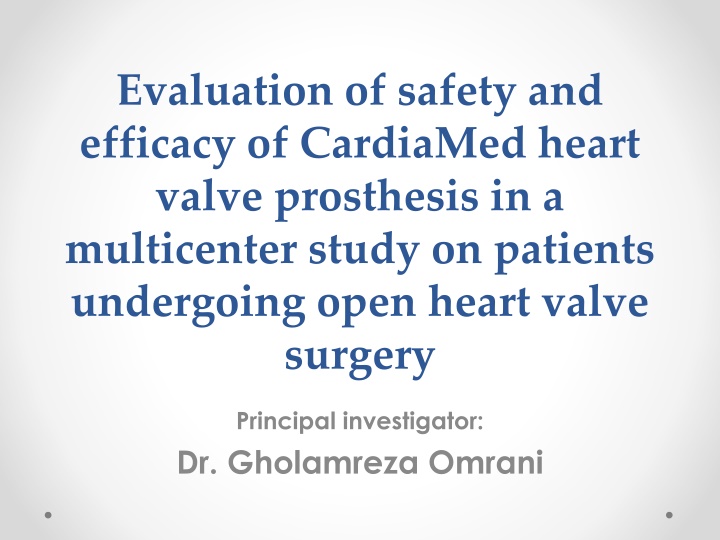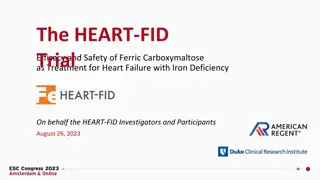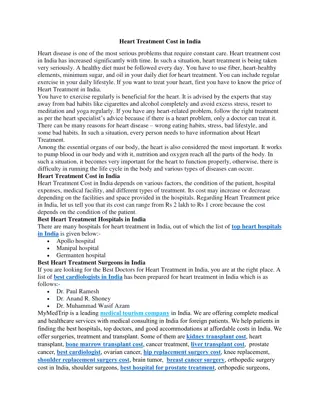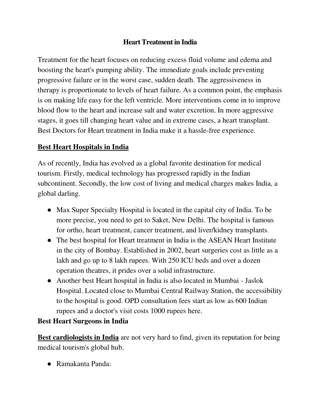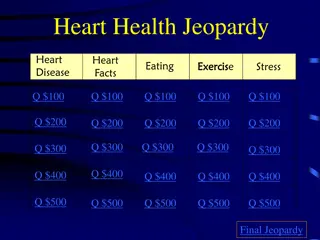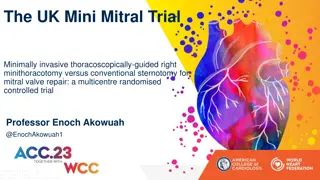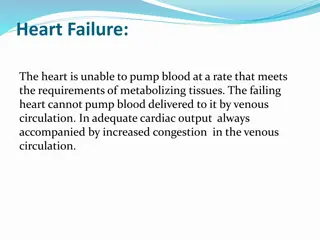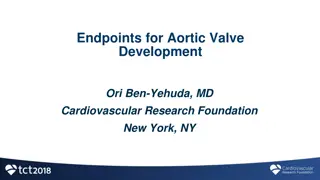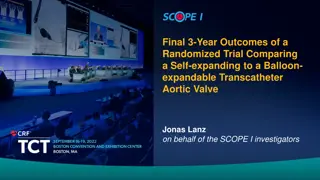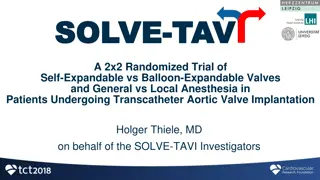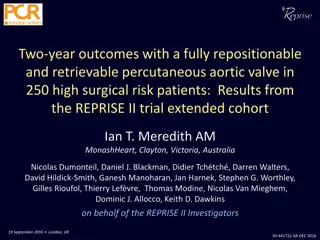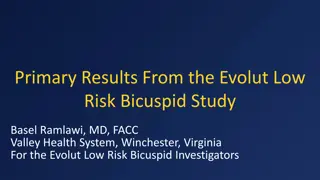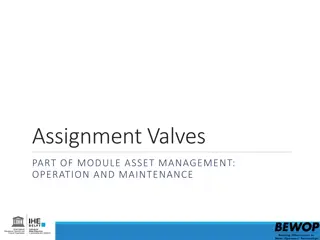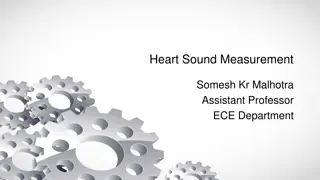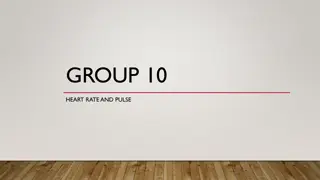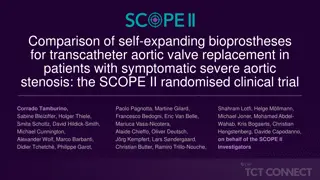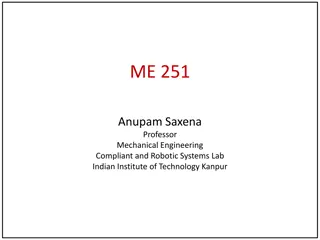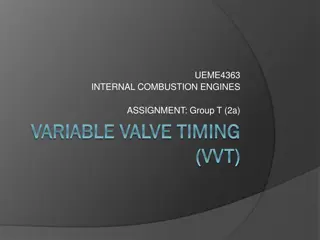Safety and Efficacy of CardiaMed Heart Valve Prosthesis Study
This multicenter study evaluates the safety and efficacy of CardiaMed heart valve prosthesis in patients undergoing open heart valve surgery. The study includes literature reviews, rationale, and methods for assessing the CardiaMed valve's performance in mitral and aortic valve replacements.
Download Presentation

Please find below an Image/Link to download the presentation.
The content on the website is provided AS IS for your information and personal use only. It may not be sold, licensed, or shared on other websites without obtaining consent from the author.If you encounter any issues during the download, it is possible that the publisher has removed the file from their server.
You are allowed to download the files provided on this website for personal or commercial use, subject to the condition that they are used lawfully. All files are the property of their respective owners.
The content on the website is provided AS IS for your information and personal use only. It may not be sold, licensed, or shared on other websites without obtaining consent from the author.
E N D
Presentation Transcript
Evaluation of safety and efficacy of CardiaMed heart valve prosthesis in a multicenter study on patients undergoing open heart valve surgery Principal investigator: Dr. Gholamreza Omrani
Rationale The CardiaMed valve (CardiaMed; Uden, Netherlands and Penza, Russia) was first approved for clinical use in 2003. The valve contains 2 leaflets that rotate around a central axis. Based on the results of two leading studies, the CardiaMed heart valve displays an excellent hemodynamic profile and minimal rates of valve- related adverse events. Due to US sanctions and the high cost of available prosthetic valves, the CardiaMed prosthetic valves can be an appropriate alternative for the available prosthetic valves.
Literature review 1 In a multicenter study performed in Russia, the efficacy and safety of the CardiaMed prosthetic heart valve was evaluated in patients who underwent mitral (209) or aortic (211) valve replacement from 2003 to 2004 at 7 institutions The 7-year survival rate was 85%, 86%, and 84 in total, AV, and MV groups, respectively. Structural valve failure (0%/patient-year), thrombosis (0.63%/patient-year), thromboembolic complications (0.13%/patient-year), hemorrhagic bleeding (0.64%/patient-year), prosthetic endocarditis (0.28%/patient-year), and hemolysis (0%/patient-year). Asian cardiovascular & thoracic annals. 2014;22(1):9-17
Literature review 2 A prospective clinical trial study was performed in Egypt to compare the outcomes of CardiaMed with those of Saint Jude Medical (SJM) prosthetic valve in the 60 MV replacements All patients were followed up at three and six months post-operatively The PPG and MPG were slightly higher in Group I (10.9 1.2 and 5.3 0.9) than in Group II (10.2 2.3 and 5.2 1.3) Early post-operative complications (re-exploration for bleeding, rhythm disturbance, or wound infection) were seen in 4 patients (13.3%) in CardiaMed and in 5 patients (16.7%) in SJM group. Journal of Egyptian Society of Cardio-Thoracic Surgery. 2017;25(3):242-8
Methods 1 In a quasi-experimental pilot study, one-hundred patients with rheumatic heart disease will be enrolled into this study. All patients will be selected from 4 centers in Iran, including Rajaie hospital of Tehran, Shahid Madani hospital of Tabriz, Chamran hospital of Ahwaz, and Dena hospital of Shiraz. All patients will undergo open heart valve surgery and the mechanical CardiaMed valve will be deployed in the position of mitral and aortic valves. Exclusion criteria included patients undergoing re-do valve surgeries, patients with left ventricular ejection fraction <40%, and patients younger than 18 and older than 65 years old.
Methods 2 During follow-up period, all patients will be evaluated by echocardiography at 5 steps, including preoperative, intraoperative, early postoperative (within 1st week), 6 months after surgery, and 1 year after surgery. All bleeding, thromboembolic events, and re-operation rates will be pursued in this study. The anticoagulation status will be evaluated by INR during any steps of follow-up mentioned here. Concomitantly, all mentioned follow-up examinations will be performed in patients who undergo valvular replacement using other mechanical valves during study period in all canters. This control groups will have similar inclusion and exclusion criteria.
Costs Budget Number of Fee for each Total fee provider services service Dastavard-e- For 100 patients 61,000,000 Rials 6,100,000,000 Prosthetic valve Sina Co. Rials Dastavard-e- 4 experts in 4 25,000,000 Rials 100,000,000 Rials Technician for data Sina Co. centers collection and data entering into software Dastavard-e- Analysis and 50,000,000 Rials 50,000,000 Rials Data analysis Sina Co. report 6,250,000,000 Rials Total budget
